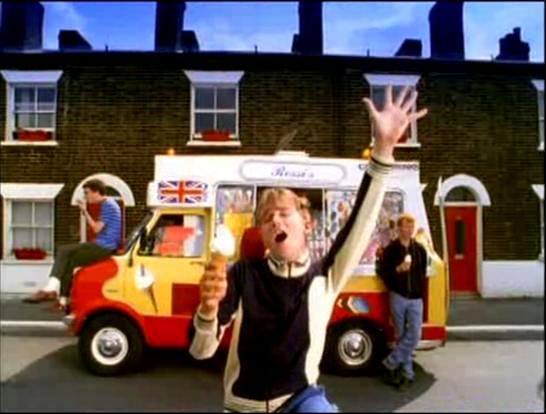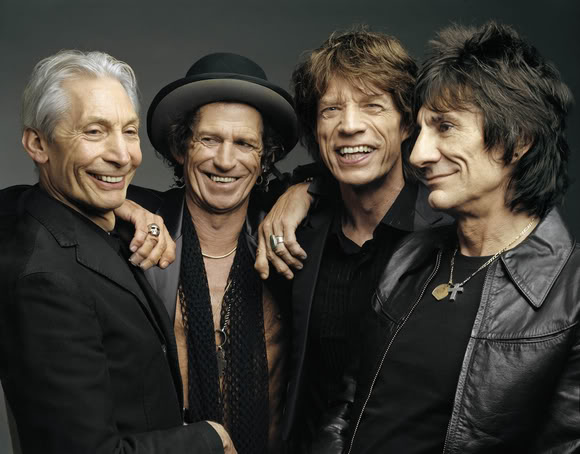I can’t be bothered reading the music press any more. Partly this is an age thing: the new music magazines tend to cleave either to the kids, who are looking for something to call their own, or hipsters who seek out the obscure, while the “classicists”, like Q and Mojo etc, endlessly venerate the middle of the rock, the tried and true. This is all very well when it comes to the Classic Rock Canon. The trouble is when they prattle on about tepid shite like David Grey or Springsteen or Coldplay or the endless would-be Joni Mitchells: derivative nothingness that ekes out a living in the slipstream of really creative musicians. How I utterly loathe and detest lack of imagination in music! And how common it is. So easy to follow whatever trend, whatever genre, whatever production formulas and fads.
Both types of writing, more specifically, endlessly irritate with their attempts to hitch whatever releases to the zeitgeist. It must be every music journalists’ dream to the next Geoff Barton, he of Sounds who popularised the “New Wave of British Heavy Metal” (aka the NWOBHM, which so inspired Metallica). This leads to absurd drivel trying to read more into music than is there. I remember some ridiculous twat saying how Bloc Party were “scarily prescient” with an album or single called Tsunami, just before the 2004 disaster. I mean, that is low. Or how The Strokes apparently inaugurated a CBGBs/lower-East Side revival, when they really were nothing like punk forebears like Television or The Ramones or Blondie etc, and were actually embarrassed by such comparisons.
This is the trouble: at times, media and fashion trends will dictate the “need” for a certain type of band, and if there isn’t one to hand, well, they’ll try to shoehorn one in. Thus, Suede “inaugurated” Britpop, despite Brett Anderson’s contempt for its parochiality and jingoism. The Almighty, older metalheads may remember, were to be the Great British Metal Hope of the early 1990s, were it not for the fact that they sucked ass, and were really a punk band in it for the money. Iron Maiden, going even further back, originally had a distinctly punky edge and had to turn down record label request to cut their hair to fit in with the by-then goonish punk style. (Their first album, with its street-level aggression, budding ambition (see “Phantom of The Opera” – check this video of Paul Dianno-era Maiden live at the Rainbow – thought its telling that the best part is the instrumental section) raw charm, and lack of filler (always a Maiden problem) remains my favourite). This kind of fashion-led music journalism is a joke, never conveying the merits of an album nor contextualising what the artist(s) are doing musically. It leads to albums which might be flavour of the month but which is actually vastly overpraised. Here’s some I think never lived up to the hype.
Blur – Parklife
It is a clever album, sure. At a time when British music was looking westwards to grunge, dance or hip-hop, this was a bold proclamation of British cultural tropes and memes. The trouble was, it was so fucking arch, so sneeringly ironic, that a good half of the album comes over as callow posturing. Case in point: “Parklife”, a song I have always detested. Song for song, it starts very well – “Girls And Boys”, “Tracy Jacks” and “End Of Century” are a fine 1-2-3 (though not as good as “Tender”, “Bugman” and “Coffee and TV” from 13), but gor blimely guvnor, if the second half ain’t filled with oh-so-satirical portraits of working class life and Londonisms and all that guff.
Kraftwerk – Trans Europe Express
OK, this will be controversial. Trans Europe Express is a mighty fucking fine album, and songs like “Europe Endless”, “Metal On Metal” and the title track are indisputable classics. Trouble is… “Hall Of Mirrors” and “Show Room Dummies” both leave me cold. When you compare that to their other great albums, that’s an unusually high dud ratio (The Man Machine: no duds; Computer World: no duds; Radio Activity: no duds). I just find it a bit weird that TEE is always cited as the Kraftwerk album to listen to, the one that makes all the Best Of polls. I’d put The Man Machine first as their best, most consistent, most Kraftwerkian – and then Computer World.
Beastie Boys – Paul’s Boutique
I don’t quite get why this one is so critically lauded. It seems to me like a bunch of samples of good songs thrown together. Might have been a relatively new idea at the time, but hey, if you sample a lot of good songs, you can’t really go wrong. The range is nice, but… unless you’re really doing something new and imaginative with them, not just rapping over them, it’s not much of a stretch. I FAR prefer the subsequent Check Your Head, which is an even denser stew of samples and excellent rootsy live instrumentation. I love that warm fuzzy bass sound they have, and the richness and range of the styles of music. In comparison Paul’s Boutique is a series of clever backdrops to the Beasties’ rhyming – alright, but not, I’d say, what they do best. (The Check Your Head follow-up and partner-piece Ill Communication is perhaps even better, if less original).
Daft Punk – Discovery
As much as I loved Homework, I loathed Discovery. “One More Time” – what an appalling song! When I briefly worked in Edinburgh, it was on high-rotation on Radio 1 – must have been something like once an hour. No wonder songs no longer rise on the charts when they get flogged to death like that. This is not to say I dislike house-style electronica – I like the stuff the DP duo did in between Homework and Discovery, especially “Music Sounds Better With You” (lovely video) but also (even!) “Gym Tonic“. It’s just that the housey/R&B stylee of Discovery discards everything I’d liked about Daft Punk – the abrasive rhythms, the abandon, the intensity – in exchange for pretty mediocre pop/disco tunes. Meh.
Others:
Definitely Maybe is infinitely superior to What’s The Story Morning Glory?, even considering Wonderwall.
Music For the Jilted Generation is faaaar better than The Fat Of The Land.
Animals is better than both Wish You Were Here and Dark Side of The Moon.
Ride The Lightning, Master Of Puppets and …And Justice For All are ALL greatly superior to the Black Album.
Miles Smiles, In A Silent Way and Jack Johnson are all better than Bitches Brew.

